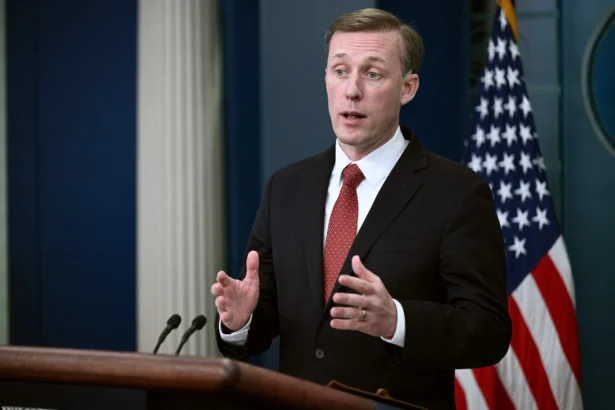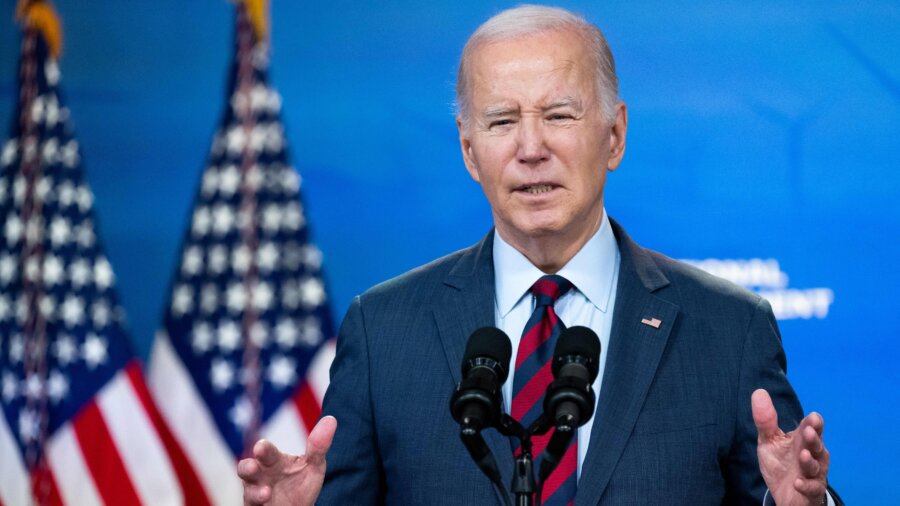A senior Biden administration official on Nov. 14 emphasized the need for global collaboration to combat Beijing’s campaign of economic coercion ahead of Chinese Communist Party (CCP) leader Xi Jinping’s meeting with President Joe Biden.
Mr. Xi is in San Francisco to attend the Asia-Pacific Economic Cooperation (APEC) summit between Nov. 14 and 17, where he and President Biden will meet for the second time. It also marks Mr. Xi’s first visit to the United States since April 2017.
During a press briefing at the White House on Tuesday, a senior Biden administration official expressed the view that the CCP has employed economic coercion in various regions, causing disruption and concern among nations.
When asked for the White House’s stance on China’s campaign of economic coercion and if President Biden would raise the issue with Mr. Xi at their meeting on Wednesday, the official referred to the G7 Summit in Hiroshima, Japan, in which the topic was addressed in a joint statement in May.
“There is a recognition that economic coercion is very damaging and has plagued a variety of countries,” the senior administration official told NTD.
“Globally, we’ve seen it in Europe,” the official continued. “We’ve seen it in Australia; we’ve seen it in the Philippines; Japan at various points.”
The CCP imposed around $20 billion in economic trade sanctions against Australia when its former right-leaning government sought a global inquiry into the origins of the COVID-19 pandemic. In response, the CCP furnished a list of 14 demands on Australia, including clamping down on press freedom, before it would withdraw its sanctions.
Japan became the latest target of China’s economic coercion, with Beijing imposing a ban on Japanese seafood, citing “safety” concerns, after Japan started releasing treated wastewater from its crippled Fukushima nuclear plant in August. To counter China’s ban, the U.S. military stationed in Japan has been buying Japanese seafood in bulk to feed its soldiers.
Meanwhile, South Korea has been dealing with China’s influence campaign for years, and now Seoul’s two major theaters are refusing to feature New York-based Shen Yun Performing Arts, which is known for its mission of reviving traditional Chinese culture. An Epoch Times investigation has found that the CCP used its embassy in Seoul to pressure the theaters against hosting the performance.
Meanwhile, the U.S. Congress’s message to countries facing the CCP’s economic coercion is clear: “We have your back,” said House Select Committee on China Chairman Mike Gallagher (R-Wis.) earlier this week.
He called Beijing’s ban on Japanese seafood exports “economic warfare” and said that the regime’s concerns about the quality of the fish were “absolutely ridiculous.”
On Nov. 11, Mr. Gallagher, speaking from where APEC is being held, assured U.S. allies in the Indo-Pacific that Congress stands with them in the face of CCP aggression.
“My message is that at least in Congress, we have your back,” he said. “I think one of our great strengths, relative to the Chinese Communist Party, is the network of allies and partners that we’ve built up throughout the years. That’s a key source of our strength.”
The regime’s economic coercion, the senior Biden administration official said Tuesday, is a “concerning feature of Chinese diplomacy,” suggesting that it undermines the smooth functioning of the global capital system.
The senior administration official did not provide specific details on the proposed steps or actions that countries should take to counter the Chinese regime’s economic coercion but emphasized the importance of working together to foster resilience and explore alternatives.
“It will be important for countries to take steps going forward to try to either work together to create greater resilience, more generally other options, but also to send a collective message that such steps are antithetical to the smooth functioning of a global capital system,” the official said.

Earlier this week, White House national security adviser Jake Sullivan framed Wednesday’s leader-to-leader meeting in San Francisco as critical for President Biden to “responsibly” manage U.S.–China competition amid rising global tensions.
“The U.S. and China are in competition. President Biden is trying to manage that competition responsibly so it doesn’t tip over into conflict,” Mr. Sullivan said in an appearance on CNN’s “State of the Union.”
Mr. Sullivan added that when it comes to managing America’s complex relationship with China, the president believes “there is no substitute for leader-to-leader engagement, face-to-face.”
Republicans in Congress, meanwhile, expressed their desire for Mr. Xi to “demonstrate” that Beijing is serious about improving ties with Washington before the two leaders meet.
In a letter to President Biden, 13 Republicans on the House Select Committee on the Chinese Communist Party, led by Mr. Gallagher, expressed their concerns over the administration’s continuing efforts to engage with the CCP.
They charged that, at the “unacceptable cost” of delaying or scuttling “competitive or defensive actions,” Washington has made “repeated concessions” while making little demand of Beijing in an effort to resume dialogue.
“So far, these very real trade-offs have led to negligible benefit,” they wrote.
Senior Biden officials have previously disclosed that the Israel–Hamas war, the Ukraine war, Taiwan, and restoring essential communications between the two nations will form part of the two leaders’ discussions on Wednesday.
In May, the G7 Summit held in Japan concluded with a joint statement outlining the group’s shared stance on various aspects of their relations with China.
Their statement referenced the CCP’s campaign of economic coercion, stressing the need for economic resilience through “de-risking” and diversifying from China, but not decoupling.
“We will seek to address the challenges posed by China’s non-market policies and practices, which distort the global economy,” the statement read.
The group vowed to counter “malign practices,” protect advanced technologies, and build “resilience to economic coercion.”
Frank Fang and Dorothy Li contributed to this report.
From The Epoch Times


